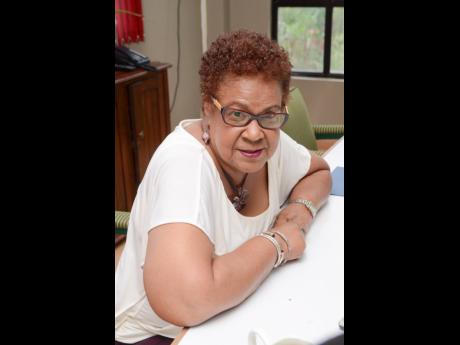Earth Today | More calls for climate justice for the Caribbean
FOR SOME, the payout due to the Caribbean under the banner of ‘climate justice’ begins and ends with the fact that First World countries today had their development fuelled by greenhouse gas emissions that now jeopardise the survival of the region’s small island developing states (SIDS).
“My perspective is that the industrialised world has generated tremendous gains through the industrial processes. Their emissions have imbalanced atmospheric gases and we have, as a consequence, the effects of a changing climate. This changing climate has created a lot of hardship for SIDS in particular,” said chairman and chief executive officer at Environmental Solutions Limited, Eleanor Jones.
Climate change impacts include, among other things, extreme hurricane events such as Irma, the likes of which have been experienced in the region over recent years and with devastating effects to the population and economy of island states.
“The industrialised world (including the United States and Europe) has an obligation to put in investment that would help SIDS develop adaptation strategies. That, to me, is climate justice,” Jones, a seasoned development professional, noted.
“The change in climate has occurred as a result of operations in the industrial world, and I think it is grossly unfair that SIDS have to pay such a price. They cannot afford to pay for all of this, and so they should be helped,” she said further.
For Indi Mclymont Lafayette, managing director for Change Communications, resource mobilisation through a climate-justice lens can be traced back to colonialism.
“I don’t think we can divorce the colonial history from overall global politics. So there is that role. But even if we were, from what is happening to the environment now and with our emissions for the Caribbean below one per cent, the polluter pays principal applies,” she said.
NOT ASKING FOR HANDOUT
“It is only fair that they take responsibility for it and pay to help us to adapt. It is like a car accident. If you hit a pedestrian, you have to take responsibility and make sure that the person’s expenses are covered back to recovery,” Mclymont-Lafayette added.
What is more, she said that it is not that the islands are asking for a handout.
“The islands have committed to play their part, but help and assistance will have to be given to help us with some of what we are dealing with. If we are looking at the human rights approach and fairness and equity, it is pretty clear cut. It has to be that those who have benefited contribute towards that,” the Change boss added.
Climate justice as a basis on which to negotiate for climate finance was put back into the public realm locally at a symposium on the subject at the University of the West Indies (UWI) Regional Headquarters in Kingston in January.
Hosted by the UWI and Rutgers University, it saw speakers, notably Professor Mimi Sheller of Drexel University in the United States, making the case for climate justice in the region.
“There is a collective argument for the moral responsibility of high greenhouse gas emitters to make financial recompense to their climate-change victims,” she said, noting that payments would be determined by “calculable and bearable shares of the harms of climate change” that would be worked out through, for example, international compensation mechanisms.
“I think we need to reinforce the argument that colonial history, and, in particular, the demand for slavery reparations are crucial to making the case for climate reparations and climate justice today,” added the professor of sociology.

